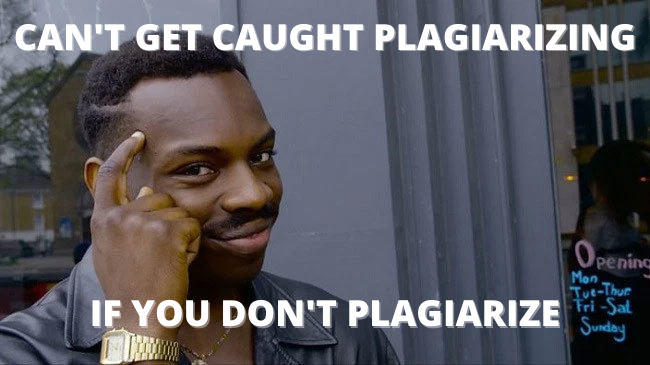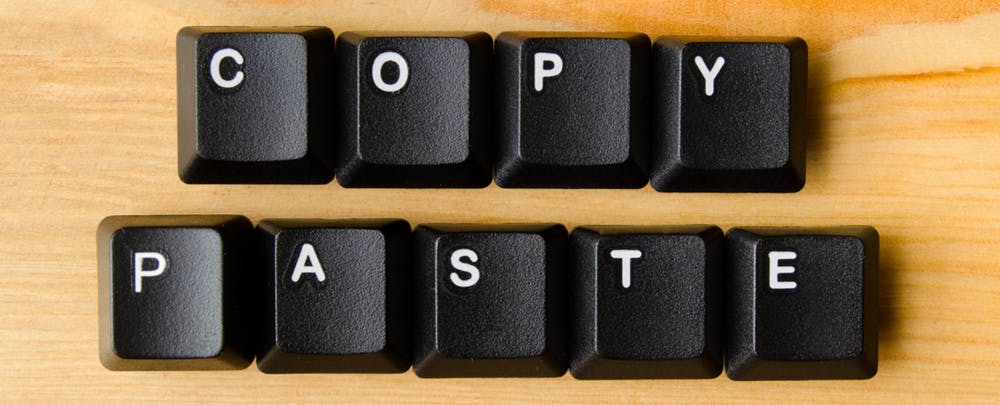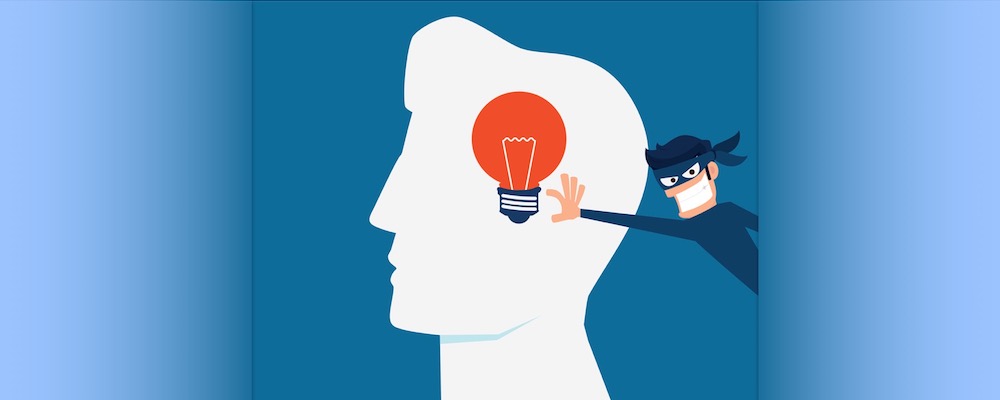
By Victoria Sananikone, Editor In Chief
Photos from EdSurge and EasyBib
Jo March from Little Women will always be one of my favorite literary figures. Not only does her tomboyish nature and longing for independence exceed the boundaries of traditional women in the Civil War era, but her passion for writing and refusal to give up on her failures is honorable. A particular scene in the recent movie that came out this summer where Jo began to reign as my favorite would be when her sister, Amy, burned the book that Jo was writing out of spite because Jo did not allow her to tag along to the theater.
“You’ll be sorry, Jo March!” Amy screamed in frustration after her sister.
She proceeded to rifle through Jo’s drawer, finding the manuscript that Jo had put her heart and soul into, and she burned it with pure malice in her eyes. After returning home, Jo realized that Amy had done something to her beloved novel.
“I burnt it up! I burnt your novel,” Amy confessed as Beth and Meg held Jo back from strangling her sister. “I told you I’d make you pay, and I did!”
Jo broke free, tackling her sister to the ground while screaming and swinging her fists at her as Amy shrieked and attempted to defend herself. Yeah, never mess with a writer’s work.
Let’s talk about the utter buffoonery known as plagiarism. Not only is this messing with a writer’s work, but it is also completely disrespecting the hard labor that they put into their writing and discrediting the genius behind their words. Today, I want to write to you about why it truly sucks when you plagiarize the work of other writers and students (unless you get their permission of course), and why you shouldn’t succumb to this pathetic piracy.
Let me enlighten you on the three types of plagiarism. I had no idea that there were three types until recently. We have complete plagiarism, partial plagiarism, and lazy plagiarism. The first two are pretty self-explanatory, so let’s focus on lazy plagiarism because I would say I’ve seen this the most throughout my life. Check out this definition that I found here (oh, hey, look at that, I’m showing you where I got my information from! We love citing our sources).
Lazy plagiarism- This form is what many people on the web are guilty of. It happens when central ideas and phrases from someone else creep into your work and are often the result of sloppiness, copying and pasting material from different sources, and failing to create something unique. This can be done as much intentionally or by accident (https://torquemag.io/).
In other words, it’s not cool.
When asked about her opinion of plagiarism in the classroom setting, McKendree University English professor Dr. Jessica Campbell had an honest response.
“Well, overall, it’s horrible!” Campbell said. “It is more widespread than it should be, and it’s horrible not only because it’s dishonest but also because it isn’t fair to students who really have worked hard on their own writing. The person it ultimately hurts most, though, is the student who plagiarizes, since they won’t learn anything if they aren’t writing the paper themselves.”
Another McKendree English professor, Dr. Jenny Mueller, explained her thoughts about plagiarism within school.
“Plagiarism is an expression of bad faith,” Mueller said. “Although they may not always realize it, when students plagiarize, they are not just cheating on one assignment with one teacher for ‘one time.’ They are defrauding others who depend on them to keep the enterprise of higher education working in a meaningful way. That includes everyone–not just their particular teachers, but all teachers, all students, all who pursue engagement and knowledge in the academic community.”
Both in the school setting and in the real world, plagiarism usually occurs when one cannot come up with their own ideas. They may be struggling to form coherent ideas and they may quite possibly think their own content is not good enough. But why would you want to copy someone else’s work, the way they write, or their ideas when you have a unique way in which YOU can create that content? The original content that you create is exclusive to your mind and no one else’s, even if someone steals it in an attempt to portray it as their own. The more you write, the more you master the art of forming sentences that will impact others. YOU have that power. That’s what being a writer is all about. And if you are a “writer” who steals the work of another writer, then you don’t deserve a seat on the throne of writers.
Another McKendree English professor, Dr. Nichole DeWall, reinforced this idea.
“I take a pedagogical rather than punitive approach to plagiarism,” DeWall said. “I try to help students understand that their voices are unique and important; by copying from someone else, they are depriving the world of their perspective.”
Now, I’m not going to sit here banging on my keyboard and refuse to acknowledge the fact that, I too, have plagiarized in the past. In seventh grade, I plagiarized a section of my paper on The Book Thief (one of my favorite novels of all time, go give it a read) and I had the entire class snickering at my newfound wittiness and sudden mastery of scholarly writing. I felt so guilty—I mean, how can you not? That’s someone else’s work that they put their heart and soul into, ideas they may have concocted for hours—days, maybe—and I stole it as if I had the right. I had no right. All I had was the AUDACITY.
I am incredibly passionate about the concept of plagiarism because I didn’t truly understand the magnitude of how much it affects a writer until I had my personal blog plagiarized more than once. Entire sentences, concepts, layouts, even my personal quirks; all of the attributes that made my blog one of a kind had been robbed right before my eyes, a complete disrespect to my endeavors. The resentment I felt was honestly scary, as I felt like my greatest passion in life was dwindling into something so insignificant that another person could steal for their own agenda. When I saw that word-for-word sentence plagiarized off my blog, I released the freaking Kracken. I was Regina George bursting into her room and flinging open her burn book. I was constantly plagued with the idea that other people might think that I was plagiarizing the plagiarist!
I asked Dr. Campbell how she would feel if someone plagiarized her work.
“I would be livid and horrified,” Campbell said. “Having recently finished a book manuscript that I’ve been working on for years, I don’t even like to think about this happening! I suppose the way I would react would depend on the circumstances of the plagiarism; in any event, I would certainly pursue an official correction of the record.”
Dr. Mueller has actually fallen prey to a plagiarist.
“I have had a published film criticism plagiarized–by another teacher!” Mueller said. “It was an article in a film encyclopedia about the movie Do the Right Thing. My work was unsigned and included in a film encyclopedia, so he may have considered it fair game. But it was entirely my individual labor and thoughts. He published my writing as his on a website. I think it was intended for his class! What this shows is that everyone is capable of slipping into bad faith practice when they are pressed for time and think they aren’t doing anything serious–not just students, but also teachers might do this.”
Charles Caleb Colton once said that “Imitation is the sincerest form of flattery.” This is true; an individual might feel some level of flattery from the poor soul who thought their work was impressive enough to steal. Honestly, I’m quite flattered by my plagiarist’s efforts, but, c’mon dude. If you lack the ability to create your own original content, then don’t post anything at all. I once read that copying someone else’s work is “the scarlet letter of blogging mistakes.” Within any realm of creating your own work (art, blogging, scholarly articles, etc.), I would say plagiarism is the scarlet letter of mistakes. It is a complete violation of the creator’s code of ethics in which you are putting on a façade and risking damage to your reputation. You are stealing work that one has labored extremely hard to make their own, discrediting their time and skill. You are masking their content with your inability to forge your own ideas and I absolutely will not stand for it.


Victoria, I agree with your assertion that plagiarism hurts both the person who created the material and the person who copies it. Thanks for sharing this important message.
This reminds me of Nikola Tesla’s quote, “I don’t care that they stole my idea . . I care that they don’t have any of their own”. It was really a statement of his strength of character.
This is so important. Plagiarism hurts everyone involved. It’s just plain stupid. I’m so sorry someone did what they did to you! They clearly did not have much authentic creativity to work with if they have to steal it from someone else. Or, they’re just lazy. Keep your head up.
I think that you did a great job addressing this issue in it’a entirety. Plagiarism has a negative notion but yet I do not think people consider the impact that it has for the authors of the original work. I also did not know there were three forms of plagiarism until you mentioned. Great article on an important issue in the mass comm world.
Very interesting article. There’s a counterargument to the sincerest form of flattery line with “…flattery that mediocrity pays to greatness”. I can’t stand when people rip off others. Not just with academia and essays as you mention, but with music and art. Led Zeppelin’s catalogue had a ton of examples of stolen music. Movies straight up steal from other works like Inception stealing major concepts from Paprika. The Lion King is a double whammy with is plagiarizing from the 60s anime Kimba the White Lion and using “The Lion Sleeps Tonight” which is ripped off from the South African song “Mbube” by Solomon Linda. People need to be original!
I think that you did a great job addressing this issue in it’a entirety. I agree with your assertion that plagiarism hurts both the person who created the material and the person who copies it. It’s just plain stupid. I’m so sorry someone did what they did to you! I can’t stand when people rip off others. Not just with academia and essays as you mention, but with music and art. People need to be original!